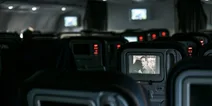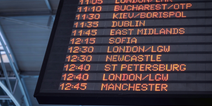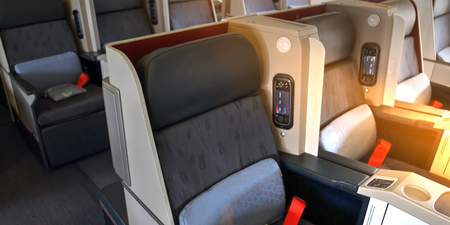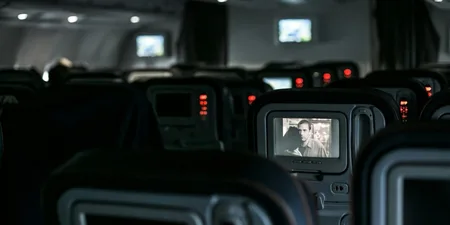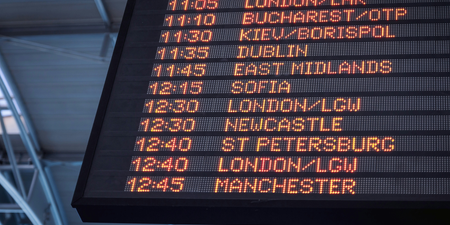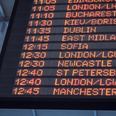Stay safe on your travels!
With all of the researching, booking, paying, and packing that goes into travelling abroad, it’s easy to forget some of the finicky and less exciting details.
After the bulk of the planning is done, our minds are normally laser-focused on cocktails, exploration, and sunshine.
However, holidaymakers – particularly first-timers – should be aware of the ever-changing updates to travel essentials to avoid any confusion on their trips.
Travel insurance experts from Quotezone.co.uk have provided their top tips for young travellers to consider when jetting off.
They say that Gen Z (18 to 27-year-olds) book an average of 29 holiday days a year, with 90 per cent of their travel decisions influenced by what they see on social media.
Travelling, however, can be confusing, especially if you’re new to it.

Tiffany Mealiff, travel insurance expert at Quotezone.co.uk says: “It’s tough to keep up with the changing dos and don’ts especially if you’re taking a gap year and travelling to multiple countries as part of one trip.
“Gen Z travellers seem to rely heavily on social media channels for their travelling advice and nearly half book the trips themselves online so it’s worth doing some extra homework.”
While these travel essentials will help demystify the rules of travel for young jet setters, they may find that there are some savings to be made.
“There could be savings to be had or you might find a vital element of your travel that you need extra cover for. Some of our tips might take you by surprise.”
With that in mind, here is a list of twelve things you might not know about travelling.
European Health Insurance Card (EHIC)
If you’re heading off for the summer, it’s important to know that an EHIC isn’t a replacement for travel insurance.
It doesn’t guarantee free medical treatment in other EU countries, rather it entitles travellers to treatment at the same rate that local residents pay.
If you have a EHIC that has expired, you will need to apply for the new global card (GHIC).
This process is free and can be done easily online up to nine months before the date of travel and will last for five years.
Travel Insurance
Many travellers will be unaware that, while an annual travel insurance policy will cover them for an unlimited number of trips over a 12-month period, there is a limit to how long each individual trip can last.
For many insurance policies, the maximum duration a person will be covered for during any one trip is 31 days.
Therefore, if you’re taking a year out, you should consider signing up for backpacker travel insurance instead of an annual policy.
A backpacker travel insurance policy can provide you with continuous coverage for 12 months or more across numerous countries.

Medical Emergency/Family Bereavement
It’s not something we want to think about when planning our travels, but if you’re unable to make your trip due to a medical emergency or a family bereavement, your travel insurance can help to cover the costs.
However, you should take out the insurance policy at the same time as you’re booking your trip to ensure you’re covered.
Luggage
When travelling, an airline may ask you to check your hand luggage into the hold just before boarding the plan.
However, the contents of a carry-on bag may not be covered by certain travel insurance policies and some may insist that valuables are kept in your hand luggage for safety.
Alcohol
If you enjoy a few drinks at an après ski bar or beach party, for example, and then decide to participate in skiing or water sports, it’s very likely that your insurance would not cover you if you suffer an injury under the influence of alcohol.
Any activity while under the influence of alcohol is usually excluded from travel insurance policies.
Travel Cards
While travel cards are designed to be used abroad, they need to be prepaid and the exchange rate will be locked in from when it’s loaded instead of the rate at the time of spending.
Some businesses also won’t accept prepaid travel cards – such as car rental firms as most will request a credit card to hold a security deposit – so be prepared and well-researched on where you’re spending and don’t be 100 per cent reliant on the travel card.

Currency
It might seem convenient and time-efficient to change your money into the local currency whilst waiting around at the airport, but there are often hefty service fees added on top. Research shows that some airports charge between 10% – 13% more than high street or bank exchanges.
It’s worth looking at what the exchange rates online are offering to customers before heading out to the high street or local bank. If you’re travelling to a less popular holiday destination then many in-person stores won’t have the currency in stock, so ordering online may be the best option.
Flight Delays/Cancellations
Young travellers should be aware that they can request help with travel costs should their flight get delayed or cancelled.
Compensation can be claimed if a flight is cancelled or if it’s delayed by two or more hours and this compensation should be applied for as soon as possible either at the airport or from the airline after landing.
Social Media
While positing on social media is a fun way to document a holiday or trip, particularly with younger travellers, it can actually invalidate your home insurance should there be a break-in during your absence.
Some insurers consider social media postings of a trip as informing potential thieves that your home is unoccupied and as irresponsible care of the property.
Safety
Some of the most popular holiday destinations are actually the ones with the highest incidents of petty theft, meaning holidaymakers should be vigilant with their possessions.
Quotezone.co.uk urges travellers to travel with a secure cross-body bag with zips or a money belt to ensure cash and valuables are close to your person.
Travellers should also never leave personal belongings unattended as travel insurance companies require travellers to take ‘reasonable care’ and could reject claims if stolen items had been left alone.
Travel Warnings
Finally, make sure your chosen destination doesn’t have any ‘do not travel’ warnings, check the Foreign, Commonwealth & Development Office (FCDO) for updates – if you go against the advice you could invalidate your insurance protection.
READ MORE:
- ‘A gift to your future self’ — Everything you need to know about egg freezing
- The bridesmaid wedding trend is rising in popularity in 2024
- ‘Treated like criminals’ — Calls for urgent reform of abortion services in Ireland
- ‘After three failed attempts, I finally passed my driving test — Here’s what helped my driving anxiety’
- What is micro-feminism? Fighting gender inequality in little ways


